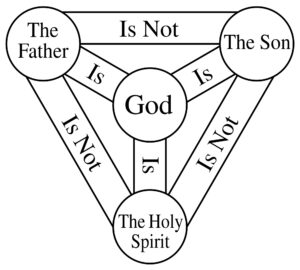Introduction:
The concept of God becoming a man is at the heart of Christian theology and is known as the Incarnation. The idea that the divine took on human form is a profound mystery that has intrigued theologians, philosophers, and believers for centuries. Probably one of the most common criticisms against Christianity is how can a man be God. In this blog post, we will explore the significance of the Incarnation and delve into relevant Bible verses that shed light on this extraordinary event.
The Biblical Foundation:
- John 1:14 (ESV): “And the Word became flesh and dwelt among us, and we have seen his glory, glory as of the only Son from the Father, full of grace and truth.” This verse from the Gospel of John directly addresses the Incarnation, emphasizing the divine Word taking on human form and dwelling among humanity. The purpose of this embodiment is to reveal the glory of God and bring grace and truth to mankind.
- Philippians 2:5-8 (NIV): “In your relationships with one another, have the same mindset as Christ Jesus: Who, being in very nature God, did not consider equality with God something to be used to his own advantage; rather, he made himself nothing by taking the very nature of a servant, being made in human likeness.” The Apostle Paul, in his letter to the Philippians, highlights the humility of Christ in the Incarnation. Despite being God, Jesus chose to take on the form of a servant, displaying the ultimate act of selflessness.
- Hebrews 2:14-15 (NLT): “Because God’s children are human beings—made of flesh and blood—the Son also became flesh and blood. For only as a human being could he die, and only by dying could he break the power of the devil, who had the power of death.” The Book of Hebrews emphasizes the necessity of the Incarnation for the purpose of redemption. By becoming human, Jesus could experience death and, through His resurrection, conquer the power of death and sin.
The Purpose of the Incarnation:
The Incarnation serves several crucial purposes:
- Revelation of God’s Nature: Through becoming human, God reveals His nature, character, and love in a tangible and relatable way.
- Atonement for Sin: The Incarnation paves the way for Jesus to fulfill His role as the sacrificial Lamb, offering atonement for humanity’s sins through His death on the cross.
- Identification with Humanity: God, in the form of Jesus, identifies with the human experience, empathizing with our struggles, temptations, and joys.
Conclusion:
The Incarnation is a central and profound aspect of Christian faith, demonstrating God’s extraordinary love and commitment to humanity. Through key biblical verses, we see that God becoming a man was not a random event but a purposeful and necessary act for the redemption and reconciliation of humanity. As we reflect on the Incarnation, may we deepen our understanding of God’s love and respond with gratitude and devotion.
Watch the YouTube video here: https://youtu.be/eK-6orkjm0M
Watch the YouTube Short here: https://youtube.com/shorts/b9s2Xk9g63c




